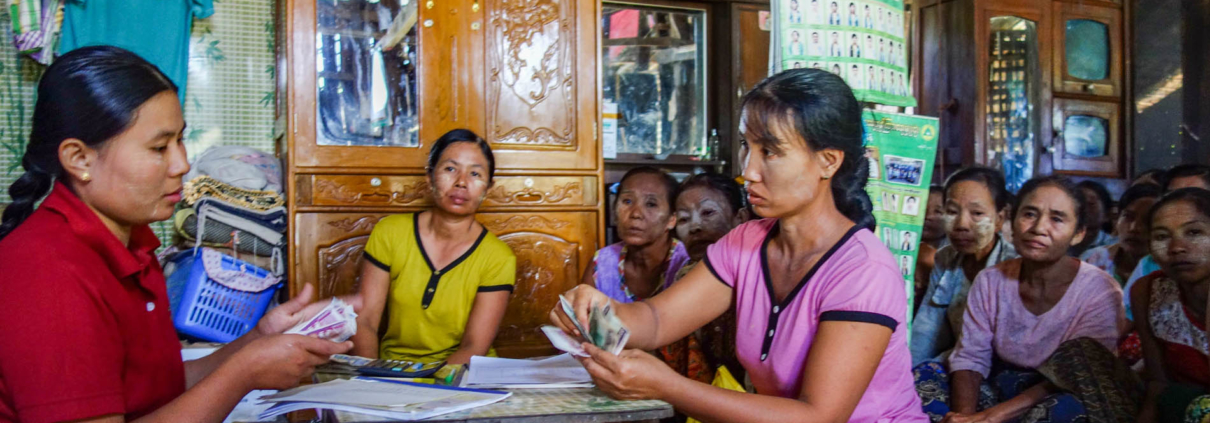Nov 24, 2016 – Kyonpyaw branch is the biggest of ECLOF Myanmar, with others located in Yangon and in the Dry Zone. ECLOF Myanmar finances predominantly smallholder agriculture. The average loan disbursed is around 100 USD per client. Almost all clients are women who come together in solidarity groups of 5 to co-guarantee each other’s loans, share and learn from each other. Besides offering access to loans, ECLOF Myanmar actively promotes a savings culture among clients and builds their financial and business skills.
To protect clients from debt after personal misfortune or a natural disaster, ECLOF runs a self-managed risk-mitigation mechanism: the Beneficiary Welfare Program. It cushions many risks clients face, from loss of life over fire, flood, erosion, storm, landslide to loss of livestock, boats, nets etc. If a borrower falls into default due to health problems or natural disaster, then the fund will cover the write-off of their loan so that the client can re-start their business. This protection mechanism is financed by ECLOF, with a small contribution of 1% of the loan amount coming from the clients.
With a team of 23 staff, 15 of whom are permanently with clients in the field as loan officers, ECLOF’s Kyonpyaw branch serves over 6,200 clients in the area across 91 villages. Since 2013 when the branch started, ECLOF has disbursed over 3.1 million USD worth of loans in the township, financing farming, animal husbandry, health and education.
Kyonpyaw is one of 330 townships in Myanmar, located in the lower Ayeyarwaddy delta between Yangon and Pathein. It is home to a population of 239,890 of whom 90% live in rural areas. Livelihoods of local households are based mainly on agriculture (70%) and fishing (20%). Farmers cultivate banana, cassava, rice, sugarcane and beans; many still rely on subsistence farming.
The area is prone to natural disaster and unfavorable weather conditions. Many, particularly the young, are migrating to the bigger cities in search of job opportunities. Distances to health and social services are large, and the infrastructure is weakly developed across the township. Many villages away from the main highway are still reached only by foot and bullock carts; the better ones boast a gravel road apt for motorcycles. This limits opportunities for farmers to market their produce and purchase inputs. Access to finance is limited, many villages are not served by any financial institution.





